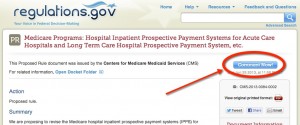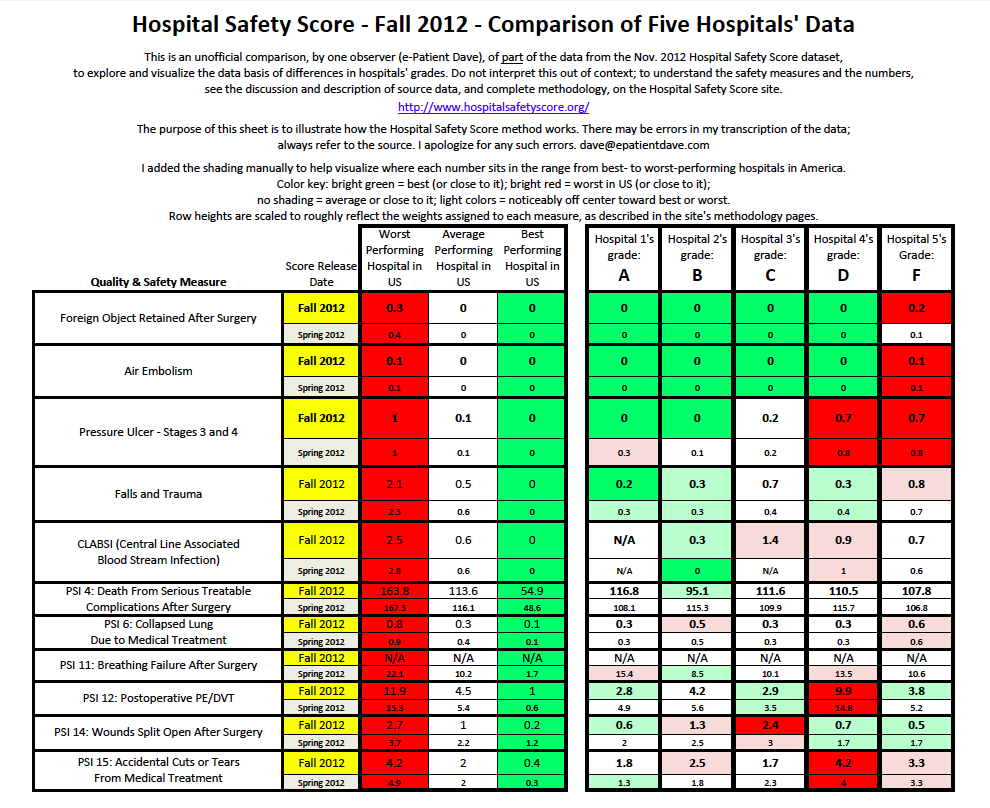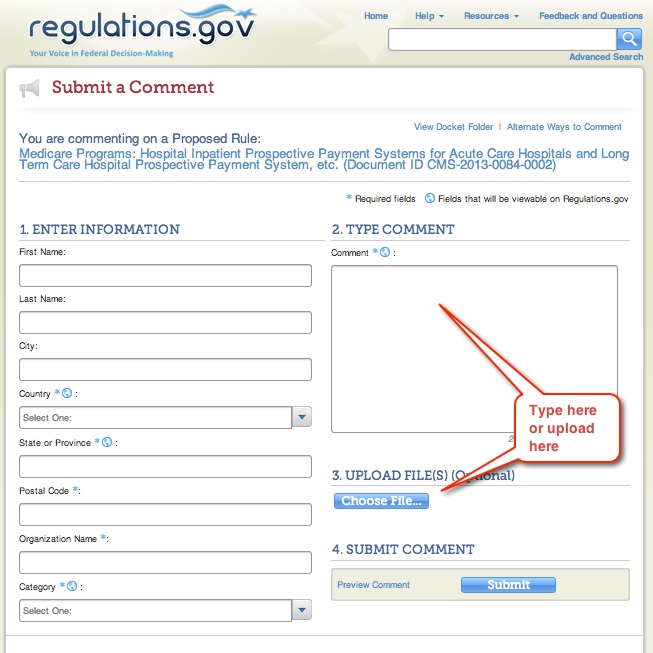 I made several corrections to the numbered paragraphs, 2:30 ET
I made several corrections to the numbered paragraphs, 2:30 ET
Time is short – deadline Tuesday.
Please forward to any individual or association who can act.
For convenience, I’ve tried to condense the issues and actions as much as possible.
Everyone in the U.S. can participate – every individual, citizen or group. Add your voice.
If you have questions, ask in comments.
1. The issues – my view
This was brought to my attention by Leah Binder, CEO of Leapfrog Group in DC, about whom we’ve often written here and on e-patients.net. They’re major fact-based safety advocates – all about the data. And as I’ve always said, we all perform better when we’re informed better.
So to me, hiding data from us is disempowering, and it dis-enables the market forces that reward the best.
The issue here is some new rules regarding what data our government shows us about the safety performance of different hospitals. In the current batch of proposed changes there are many good things, but three items concern me greatly, and I think anyone who believes in informed consumer choice must act:
1. We need data for individual hospitals, not just the whole company. YIKES! Would you want that in auto safety? Would you want to hear that on average a certain brand is reliable, but have them hide that certain models explode or roll over?? But that’s exactly how it is in medicine. Consumer families need better information.
- This is no small issue – in the example at right, the four hospitals that got grades of A through D are all part of the same company. Do you want that data hidden, so when your relative gets sick, all you know is the company’s overall average??
- Remedy: demand that we continue to see the data for every hospital!
- Note – this isn’t just a consumer rights issue – if the best providers aren’t paraded, how can the market reward them?
2. We need them to publish why certain hospitals are being financially penalized. If a hospital is much worse than average, Medicare can dock their pay – and we need to know why. (They’d have to still tell the hospital, but it wouldn’t be right to hide the facts from us!)
3. Consumer families need better information than “90% of hospitals are average.” I know that’s ludicrous, especially when you look at that chart. But the current policy is to say that 90% of hospitals are “no different from national average.” (See Leah’s more detailed statement at bottom of this post.)
If the middle 90% are “no different from average,” it means someone at fifth percentile is the same as someone at 95%ile. That doesn’t work in any other area of life – why should it happen here?
By the way – why does Maryland not have to report its data??? Nor Guam or Puerto Rico. (They’re not states, but they sure do have American families living in them!) (But MARYLAND??)
My view:
Who’s the ultimate stakeholder here?? Which party is most affected by the data?
Is the family entitled to be well informed when someone’s sick, or should the rules protect the interests of the worst-scoring hospitals??
I mean: seriously?? Is that even a question?
If we don’t act, other forces will win. So:
2. Pick your response
If you’re a policy geek you don’t need my help – skip ahead. If you’re new to speaking up, here are your options:
- Leapfrog has written a 4-page letter, which you can download here (PDF). To “sign on” to that letter, write to Alina Czekai, Special Projects Assistant.
- Download Leapfrog’s one-page template; edit it or just sign it.
- Or just write your own thoughts.
Then:
3. File your response
Here’s how to file electronically, from the CMS site:
p.s. Additional explanation from Leapfrog:
I wrote to Leapfrog CEO Leah Binder to be sure I clearly understand the issues, and she summarized it like this:
“As part of the Affordable Care Act, CMS is required to cut payments to hospitals (by as much as a whopping 1%) if the hospital falls behind other hospitals in patient safety (measured as “Hospital Acquired Conditions”). This proposed rule lays out how they hope to measure whether each hospital falls behind or not. In the Fall, CMS will make the proposed rule a final rule, meaning law of the land, and they will have to publicly account for how they responded to all the comments they receive from the public.
“What we are pointing out is that whatever CMS ends up deciding [re] hospital payment should be made 100% transparent [visible to the public]. … all measures used to rate the hospital for purposes of payment, including the specific numerators and denominators. There is no current requirement that they report this … you could have a hospital dinged by CMS [to the maximum level] with no information given to the public on why. …
“We ask for numerators and denominators because another pattern of CMS’ is that they report measures in three categories, with 90% or more of hospitals categorized as “no different from the national average.’ This is what they do now on Hospital Compare. We want all the data behind their calculation, so the Hospital Safety Score and other consumer-facing organizations can reach their own conclusions about what the data means.




Leave a Reply